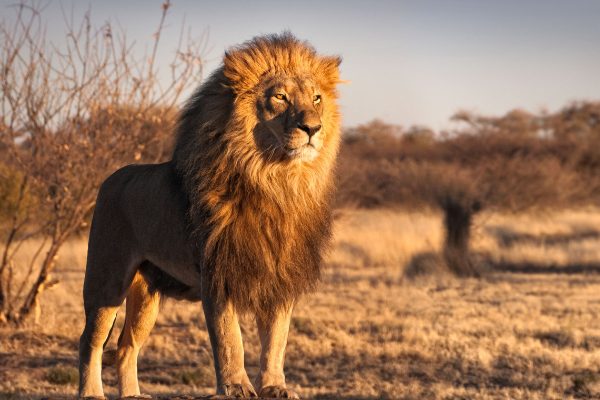Connecticut trophy hunters will no longer be able to sell the body parts of the African elephants, giraffes, leopards, lions and rhinos they kill because Governor Ned Lamont signed the Big 5 African Trophies Act into law. Friends of Animals helped draft the legislation, also known as ‘Cecil’s Law.’
“While this does not bring Cecil the lion back, it means his tragic death in 2015 was not in vain. His death made Connecticut lawmakers see the trophy hunting industry for what it is—morally bankrupt as well as economically useless in terms of conservation,” said Priscilla Feral, president of Friends of Animals, which is headquartered in Darien and supports conservation projects in Africa.
“We’ve worked for five years to deliver this setback to the trophy hunting industry and to help protect these magnificent ecosystem engineers. Killing is not conservation and we express our gratitude to state Senate Majority Leader Bob Duff and state Sen. Christine Cohen for their efforts to achieve this significant step to disincentivize trophy hunting because no one else could have shepherded this through the gauntlet of special interests. It’s been a Herculean task.”
Since 2005, Connecticut residents have killed 71 leopards, 39 lions and a giraffe. They also killed seven elephants. The 2016 near total federal ban on commercial trade in elephant ivory still allows Americans to import two elephant trophies per year.
Friends of Animals will continue to press New York pass similar legislation since it is the biggest port of entry for wildlife trophies in the United States. And just last week FoA acted on the federal level by filing a rulemaking petition with the U.S. Fish and Wildlife Service to stop the importation of the sport-hunted “trophies” of threatened and endangered animals.
“If the goal of the Endangered Species Act is conservation of species, our regulations should not grant a loophole legalizing the slaughter of the most vulnerable among them and then add insult to injury by permitting the glorification of the killing through the importation of their dismembered body parts,” said Steve Hernick, an attorney for Friends of Animals Wildlife Law Program.
“Permitting individuals to hang lion and leopard heads or mount elephant tusks on the walls of their homes, for example, undermines the message that we should be protecting them.”
Banning the import of trophies into the United States will have a profound impact on threatened and endangered species since Americans kill far more animals than any other nation. FoA’s petition points out that FWS blindly equates money spent on a trophy hunt with enhancement of the propagation of a species, ignoring evidence to the contrary—studies show that trophy-hunting programs are grievously damaging species such as elephants and lions. The petition shows that trophy hunting encourages poaching by reducing the stigma of killing these animals and providing poachers with a way to camouflage their parts. It also reveals trophy hunting has disturbing sociological effects on hunted populations and interferes with natural selection by removing a species’ strongest and healthiest animals from the gene pool, leaving threatened and endangered animals more vulnerable to extinction.
“Trophy hunting sends powerful shockwaves through the core of a species’ society that can lead to profoundly alarming and unnatural behavior,” Hernick said. “Furthermore, it kills the members of a species most able to adapt to environmental changes. Considering the current extreme flux in their environment due to climate change and habitat loss, we are effectively condemning trophy-hunted species to extinction.”
For all these negative effects, there is no evidence that trophy hunting aids in conservation. Studies show that only about 3% of trophy hunting revenues go to support conservation in local communities. The economic benefits to conservation are far stronger from non-consumptive community-based wildlife watching tourism—it is the silver bullet for protecting African wildlife, not actual bullets.

